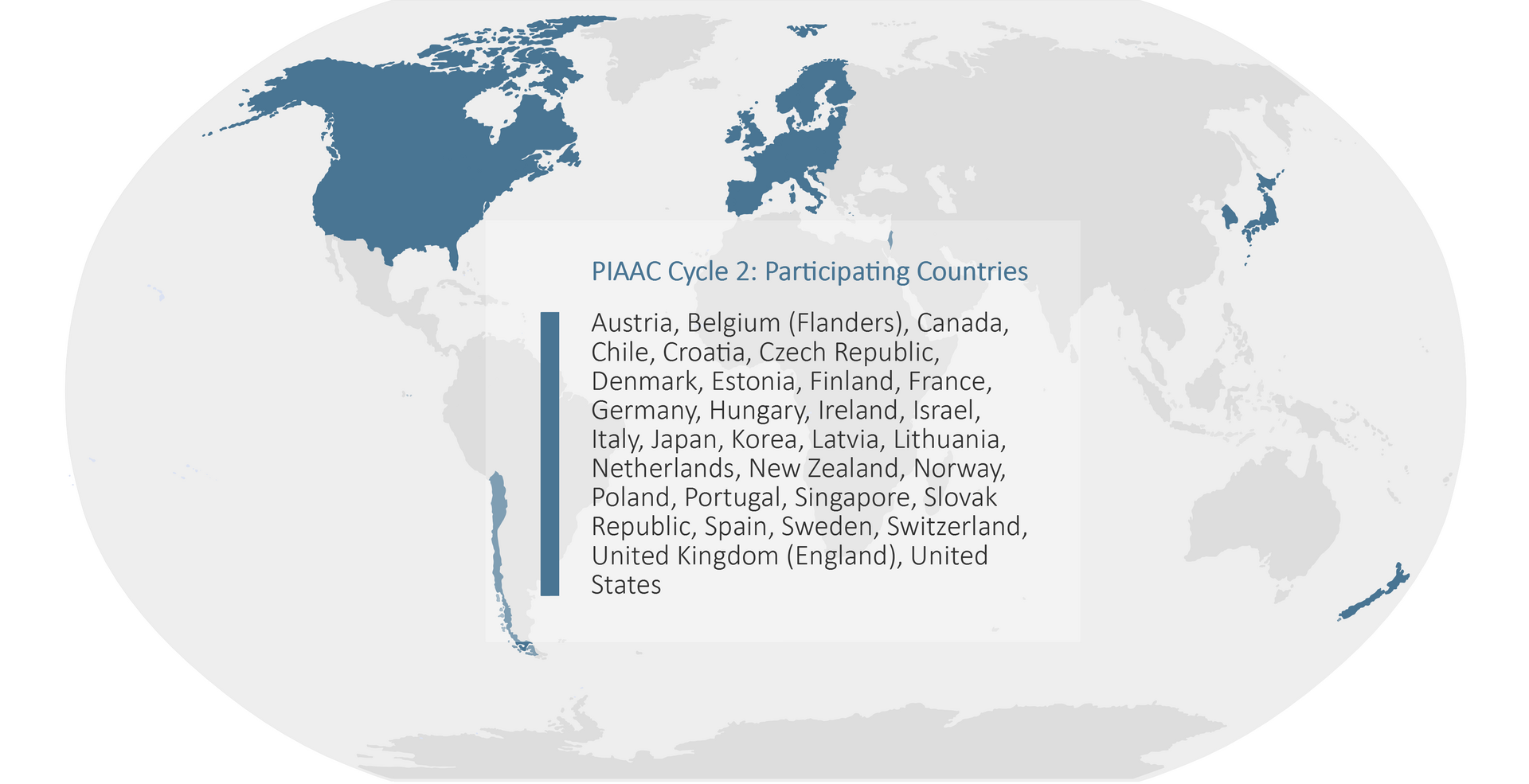Frequently Asked Questions
Here you will find answers to frequently asked questions about the PIAAC survey and your participation.
PIAAC in General
What is PIAAC?
PIAAC stands for Programme for the International Assessment of Adult Competencies. Organized by the OECD (Organisation for Economic Co-operation and Development), PIAAC assesses common everyday skills among adults in more than 30 countries worldwide. The survey takes place every 10 years and is being conducted for the second time.
What is the objective of PIAAC?
PIAAC aims to provide insights into key everyday skills among the adult population in Germany and in the other participating countries. The results of PIAAC will serve as a basis for important policy decisions in order, for example, to improve educational offerings and labor market opportunities in Germany and to ensure economic, social, and societal progress.
Which countries are participating in PIAAC?
For PIAAC, people in 31 countries in Europe, Asia, North and South America, and Oceania will be surveyed at the same time.

Who is conducting PIAAC in Germany?
PIAAC is a study in the public interest. In Germany, it is funded by the Federal Ministry of Education and Research (BMBF) with the support of the Federal Ministry of Labour and Social Affairs (BMAS). GESIS – Leibniz Institute for the Social Sciences was entrusted with the scientific national project management of PIAAC in Germany. The survey will be administered by professionally trained interviewers from the survey institute Kantar (formerly Infratest).
What is meant by everyday skills?
Everyday skills refer to, for example, reading and understanding texts or handling numbers. More precisely, they refer to skills that we frequently use in our everyday lives, for example, when searching for information on the Internet or comparing special offers.
Your Participation in PIAAC
How was I selected?
Several thousand of the 54 million adults aged 16 to 65 living in Germany have been selected to participate in PIAAC. All persons selected were randomly drawn from the population registers and cannot be replaced by other people.
What will I gain from participating in PIAAC?
First of all, as a thank-you for your participation you will receive 50 euros in cash. At the same time, by participating you will be supporting this major international study and making an important contribution to the further development of society in Germany. Many participants have also reported that the survey is interesting and fun.
Do I have to participate in the survey?
Your participation in PIAAC is, of course, voluntary. However, to ensure that the results for Germany are meaningful, it is necessary that they reflect the diversity of society. Therefore, it is crucial that all selected persons participate. That means that your participation counts, too.
I don’t speak German very well. Can I still participate?
Yes, of course. It is important that all persons who were selected for PIAAC participate. If necessary, someone else can translate parts of the interview for you.
The PIAAC Interview
When will I be interviewed?
The survey will take place between Fall 2022 and Spring 2023. An interviewer from the survey institute Kantar (formerly Infratest) will contact you personally to arrange a date and time for the interview that is convenient for you.
What happens during the interview?
First, you will be asked some general questions about yourself, for example, your family background, your education and training, your work history, and your current living situation. Then you will use a tablet computer to complete some tasks that you might encounter in your everyday life. This might be something like exchanging a product that you ordered online or determining the shortest distance between two places with the help of a map.
How long will the interview take?
The interview will take around two hours. After completing the interview you will receive 50 euros in cash as a thank-you.
Do I need prior knowledge for the interview?
No. You do not need any special prior knowledge for the interview.
